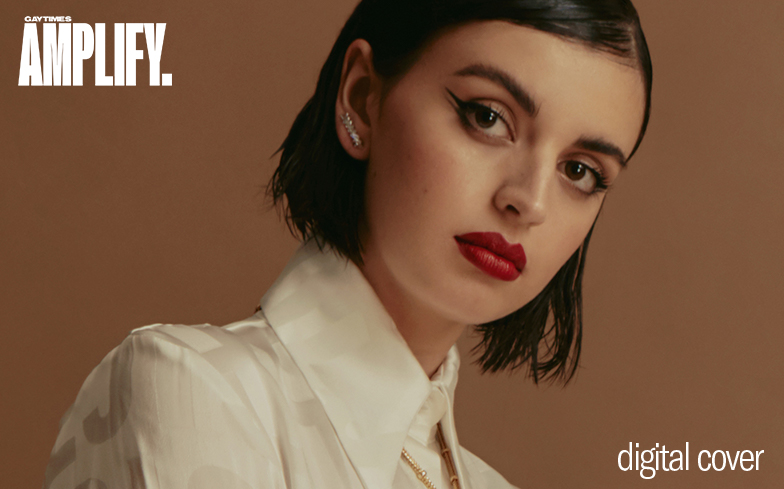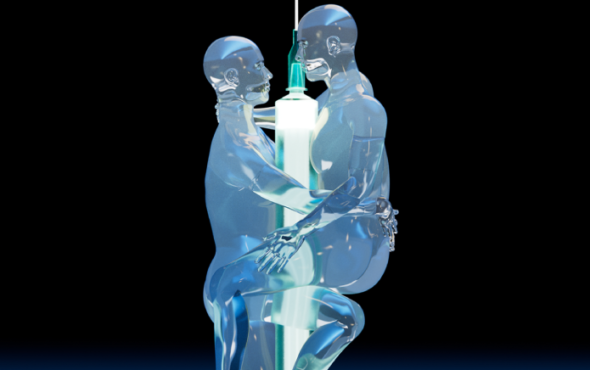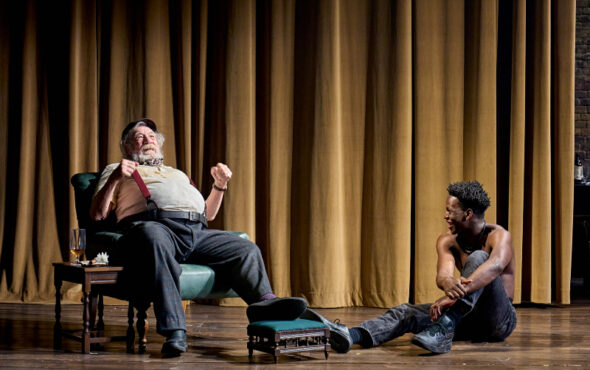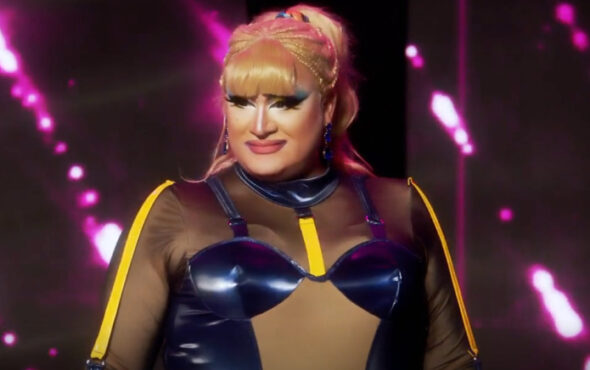
There’s nothing queer people love more than seeing someone overcoming adversity and emerging stronger on the other side. We see it with our favourite queens on RuPaul’s Drag Race, we saw it when Cady Heron overcame the Plastic’s reign of terror in Mean Girls, and perhaps most importantly we see it with our favourite female pop stars.
So it’s no surprise that Rebecca Black has won the title of ‘gay icon’. Her 2011 viral hit Friday may have been a low-key banger that we love to quote even today, but for Rebecca the track brought with it legal battles and relentless internet bullying. On the song’s ninth anniversary, she penned a heartfelt note on social media about the depression she experienced as a teenager. Now, she’s making the music she wants to make, and she’s reached a place where she can appreciate the song for what it is.
“I’ve had a really weird and strange relationship with that song – as you would with anything like that – but by now it’s something I myself have reclaimed and I’ve decided to enjoy it with the people who enjoy it with me, and have some fun with it,” she says with confidence. “The amount of gay clubs I’ve been to and literally danced to that song, whether people knew I was in there or not, it’s so fun! And that, to me, represents the pureness of that song that I’ll always really enjoy.”
As well as reconciling her current self with the internet fame of her past, Rebecca has also found the ability to talk about her queerness in the public eye. She knew she didn’t want a big coming out moment, but when people were asking about her relationships, she stopped not responding. More recently, she spoke about a relationship she experienced with another woman on the Dating Straight podcast, and the world listened.
“The first reaction came from the people listening to that podcast, many of them are fans of mine and they were so sweet, and then seeing how it’s become this bigger thing, I’m so grateful,” she says. “Obviously, you see people coming out all the time now, but god, even five or 10 years ago this just wouldn’t have been the experience people had, so I’m really grateful that it’s been so positive.”
We caught up with Rebecca (over the phone, of course… stay at home folks) to chat about her journey towards accepting her queer identity, how her fans helped inspire her to open up, and how she’s found freedom through a new approach to making music.
First of all I want to say congratulations on coming out as queer and welcome to the family! Was this a tough decision for you to make?
Thank you! I wouldn’t call it tough, but I think for me the hardest part was probably that I was always trying to find the right time, and what I realised is that there’s never really a right time and I would never have thought that this would even happen now, but I am really happy that it is happening. Everybody talks about that sense of relief and I had no idea what that would feel like, but they’re right, and I’m so happy to be finally able to talk about it.
What has the response been like since you came out?
It’s been really supportive. I kind of made a decision a couple of months ago to just… there can be so much pressure in feeling like you have to come out and make this big announcement, so I just stopped not answering when people would ask about it. I was doing this podcast with my friends and I brought it up without even realising I was talking about the gender of the person I had been dating and broken up with, it just kind of happened. The first reaction came from the people listening to that podcast, many of them are fans of mine and they were so sweet, and then seeing how it’s become this bigger thing, I’m so grateful. Obviously, you see people coming out all the time now, but god, even five or 10 years ago this just wouldn’t have been the experience people had, so I’m really grateful that it’s been so positive.

A lot of people point to artists like Lady Gaga or Madonna for helping them accept themselves and come out. Was there anyone that helped you come to terms with your identity?
Honestly, if there has been one thing to pinpoint it on – it is people like Gaga, who has always been a huge inspiration to me just generally – but over the years getting to tour and meet my fans in random places like at the mall or at a restaurant, the amount of them who have been so unbelievably forthcoming and honest with me about their own experiences, that’s what has inspired me more than anything, realising I have so much in common with these people without them even knowing – and I didn’t even know until I met them – and that has continuously inspired me.
Even though things are getting better, it can still be quite difficult to accept who you are and announce that to the world. Is your queerness something you ever struggled with?
One thing I did struggle with was that when I started to come into my sexuality I was around 19 or 20 years old – and I’m only 22 now – so part of me did almost feel like, ‘I’m too late, I should have known this about myself’, and so I wasn’t validating myself and I was questioning myself all the time – which I do think is a natural part of some peoples’ process with coming into themselves – until I started talking to people who had similar experiences to me, like friends of mine who were realising that they’re gay or fluid. I was just talking to someone who didn’t know until they were 23, so it doesn’t mean anything. The timing of when you realise isn’t important, it’s about the celebration and being able to embrace it. That’s what matters.
The word queer has been reclaimed over recent years, and it means so many different things to different people. I’m curious what your relationship to that word is?
Over the time I’ve spent coming into who I am, that’s the word that’s stuck and it feels the most natural for me, and what I appreciate about the word queer is that it’s so broad in the way it represents our community. When I started telling people that I identify as queer, some people were like, ‘That’s a bad word isn’t it?’ But at this point it has been so reclaimed, like you said, and I really appreciate that. For a while I struggled with using any sort of label, probably because I’ve been so labelled as one thing or another for my entire life, whether that’s being ‘the Friday girl’ or being a teenager forever, but I really love that word and what it means to our entire community.

It feels as though more and more people are starting to see sexuality and gender on a spectrum rather than it being a black and white situation. Does that make you feel positive for the future?
It’s definitely a positive, and I’m by no means here to say that everybody is about to identify as fluid, because that’s not the point – some people will be on one end of the spectrum or the other, and that’s just as amazing – but I think it’s really nice for people like me and so much of my audience and my friends and people I look up to, for them they be validated through this and not feel like their identity is not as serious or legitimate. Especially right now in this weird time we’re in, so many queer people are stuck in places where they’re not able to be with their chosen family or their community, they’re stuck at home with family who might not be as accepting, and I want to be able to connect with those people and say, ‘What you are is okay, it’s something to be celebrated, and we’re in this together’.
There are some people who wrongly argue that fluidity is a ‘trend’ or a ‘phase’ and they won’t take the time to learn about it or understand – is that something you’ve experienced, and does that frustrate you?
Of course it can be frustrating, because when somebody doesn’t understand you it’s one of the worst feelings in the world, but I try to not stay frustrated and instead take the opportunity – when it’s right – to help them understand. I’ve been really lucky to have an overall supportive experience coming out in my personal life, and being able to have my family and friends ask me, ‘What does queer mean? What’s the difference between that and bisexual?’ or just generally correcting certain terms. I’m happy to allow people the time to misunderstand and then be educated, because I think that’s the answer. Not everyone’s going to be accepting or want to understand, and to me that’s their loss, but there are people who are willing and they just need some help and time, and that’s okay.
There’s nothing queer people love more than seeing a powerful, independent woman come out stronger on the other side of hardship – so I have to ask, you are aware that you’re a gay icon, right?
[Laughs] No term means more to me… and I mean that! This is something I’ve said time and time again, but the LGBTQ community was always there for me before anybody else was, so I’ve always been pretty outspoken as an ally to the community and when I started coming into my own sexuality that brought new conversations along, and that has been my biggest thing throughout all of this and deciding to talk about it, I will always give my upmost respect to the community because they are who supported me before anybody else did.

There does seem to be a special creativity that comes from queerness, whether that’s music or film or literature. Why do you think queer people make such good art?
That’s a good question! I think for queer people there’s a history with our community and the way the world feels about us, there’s a lot to express and to understand about ourselves because so often there’s a lot of adversity to face wherever we are in the world. When people are dealing with adversity they often turn to art, whether it be music or visual art or whatever outlet it is, to really channel that energy and help them understand. I think all types of art are done with purpose and done trying to understand why something is happening, who you are, what you think about the world – it’s all expression.
I know Friday must have some negative memories associated with it for you, but are you able to look back on that song now and reconcile with it in some way?
Yeah, I am. I’ve had a really weird and strange relationship with that song – as you would with anything like that – but by now it’s something I myself have reclaimed and I’ve decided to enjoy it with the people who enjoy it with me, and have some fun with it. The amount of gay clubs I’ve been to and literally danced to that song, whether people knew I was in there or not, it’s so fun! And that, to me, represents the pureness of that song that I’ll always really enjoy.
You recently released two new singles, Closer and Self Sabotage, which are obviously a completely different sound than people might remember you for – how did you arrive at those tracks?
They came about because of a relationship that had just ended, and it was one of the most mature relationships I was ever in, just in the sense of the depth of the connection we had for each other – we were definitely partners more than just being girlfriends. When you really care about somebody, I think there comes a point where you look at yourself and the things you’re doing that might not be the most beneficial to you or that person, and you have to start to question those things and hopefully change that about yourself – not that we’re changing ourselves for another person, but changing ourselves for the better of you and the person you care about. And so Closer and Self Sabotage are both about that, it’s me saying, ‘I know I’ve been doing this for a while, I know I’ve been messing this up for myself for a while, now I need to start facing this’. And how do I do that? I put it into a song. So really that was where those songs came from, and I’ve been trying to do that through music, I feel like it’s a way that I can really look at myself. When I see what I’m writing about, I’m like, ‘Okay, this is where I’m at in my personal life’.

When you’re writing music now, do you feel like you almost need to separate yourself from an image people might have of you? Or are you just doing what feels good for you?
Right now, I’m just doing what feels good. That is one positive of staying at home for me, with everything going on right now in the world, is that I’m not so worried about creating things that are going to give me some sort of result. You hear it all the time as an artist, ‘When’s the hit coming? When’s the song coming?’ But the more that you try to get the song, the harder it becomes. I’ve always been inspired by so many queer artists who are going so against the grain and are so unbothered by finding the thing that’s supposed to make them blow up, and in avoiding that they find the thing that makes them unique. So lately I’ve just been trying to do what feels right. I write songs that may never come out – and probably should never come out, which is great – and sound completely different from the rest of the things I’m writing. I’m trying to be a little more free with it all, and then it becomes more fun.
Can we expect an album to come soon from all of this?
I hope so! I mean, right now everything’s a little weird, but I haven’t stopped writing, and I have a lot of stuff that I really love so once things go back to normal and everybody is safe, I can get going. I’m still working on it, and hopefully it’s coming soon, yeah.
Photography Raul Romo
Fashion Quinton Jackson
Hair & Make Up Francie Tomalonis
Words Daniel Megarry



